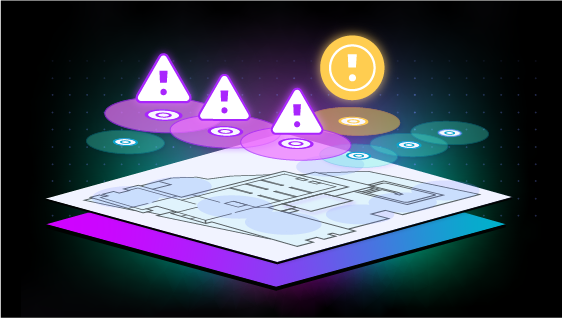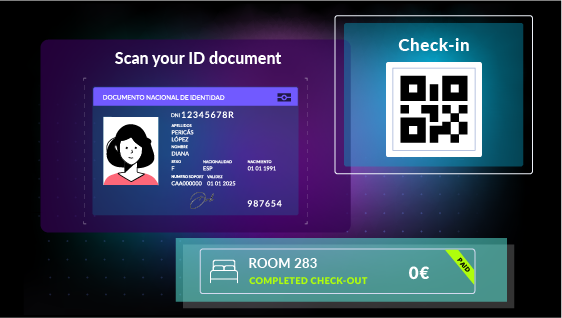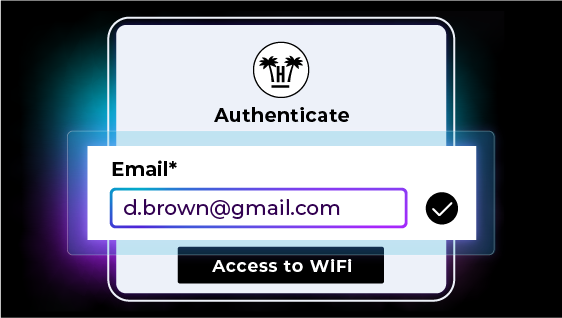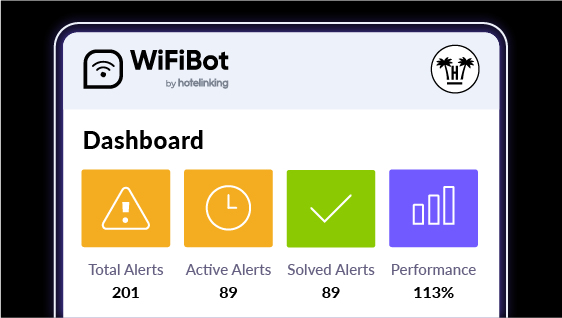
What does the arrival of 5G mean for the hotel sector? Pros and cons.
There are several factors to take into account about 5G when considering its implementation.
The future outlook of WiFi includes the development and deployment of 5G (which marks the next generation of technologies that ensure better service from mobile operators) and WiFi 6 (new standards for network technologies that are expected to increase performance), both built to enable smoother transfers for better experiences.
The arrival of 5G in particular will change how users perceive a service they take for granted. Not only will they presume it as normal, but they will also expect the internet in hotels to go as fast and be as reliable as in their own homes.
They will no longer want to use the cable service to watch TV. Still, they will demand to be able to enjoy their own pay-per-view platforms, play video games like at home, or hold videoconferences and events in high quality using the hotel’s own network.
The mobile rates trend will be to offer unlimited data, and they will want to use this data in the hotel itself. Therefore, it could be assumed that high-speed mobile connections will downplay the importance of the hotel’s WiFi, but in reality it will be quite the opposite.
Users will normalise the speed offered by their devices and the network’s reliability at such a level that not having it will be a differentiating element for the property.
The main problem: infrastructure
Operators will have to invest in infrastructure in the coming years so that 5G coverage works safely in all possible areas. All this through the massive placement of antennas or receivers.
These devices will not be placed at a private or company level, or as in our case, in hotels: we will have to assume this investment ourselves. Thus, when the potential customer enters our hotel with their smartphone (and other devices with connection) what will happen, if our hotel is not adapted, is that they will lose the 5G connection and therefore the advantages that this entails.
Hotels will be at the mercy of their local network providers as they are now with WiFi. In addition, 5G will require high-quality connections, which are expensive to set up and maintain. Therefore, only those hoteliers who commit to improving their information infrastructure will be able to pay 5G the attention it deserves.
Fibre connections are not essential for speeds to be similar to 5G, copper cable connections also work. Therefore, a hotel infrastructure may be able to withstand the speeds required by 5G, even if it uses copper cable, at least in the early stages of implementation.
But it will be absolutely necessary for the infrastructure to be in good condition, and fibre will always be the best option, especially in the links between distribution points (vertical cabling) and copper will be the best option for access points (horizontal cabling). A good audit will identify both our strengths are and weaknesses as well as any areas for improvement.
The business model is still to be defined, but it is clear that in one way or another hotels will have to commit to this technology, first to differentiate themselves from their competitors, and then, to adapt to the needs of customers who already have 5G on their personal devices.
Although the forecast is that properties will have to invest significantly, many advantages could be obtained in addition to offering a service of the highest quality to guests.
Advantages of 5G for hotels
- 5G will improve considerably in terms of coverage, since the power of this network will allow data to reach sparsely populated or rural remote settings where it was impossible to offer a quality network up until now. Currently, the deployment and set up cost to bring a connection to these places is unaffordable. 5G will enable a faster and cheaper deployment.
- Due to their size and customer demands, many properties usually have a collapsed network. 5G is expected to multiply the number of connected devices by 100 and reduce network power consumption by up to 90 %. So it will be possible to improve the quality of all users’ connections without interfering in the property’s private network.
- 5G technology will bring a new level of real-time connection known as the Internet of Things (IoT) to devices. It will allow the implementation of IoT in hotels, because it will facilitate the connection between smartphones and smart objects: previously programme a specific guest’s room temperature, pre-select an aperitif before their arrival, choose what they want to see on television, voice assistants, chatbots or even have a private network for their devices. Services that may be offered as premium.
- The communication that will be generated between these smart devices will promote and facilitate personalisation in a much more intuitive and instantaneous way.
- Another value that this technology will bring will have to do with the events that are held in hotels. The use of virtual and augmented reality during an event will be much more efficient thanks to the increase in bandwidth and the reduction of latency time. 5G technology will simplify and improve online content delivery and enable live interactions during conferences. Coverage for all participants can be guaranteed, and the possibility of connecting thousands of devices at once will be feasible.
5G gives us the possibility to digitise the sector much more quickly and the emergence of new business models. It opens up a world of possibilities that will change the way we live and work, including how we interact with our environment.








